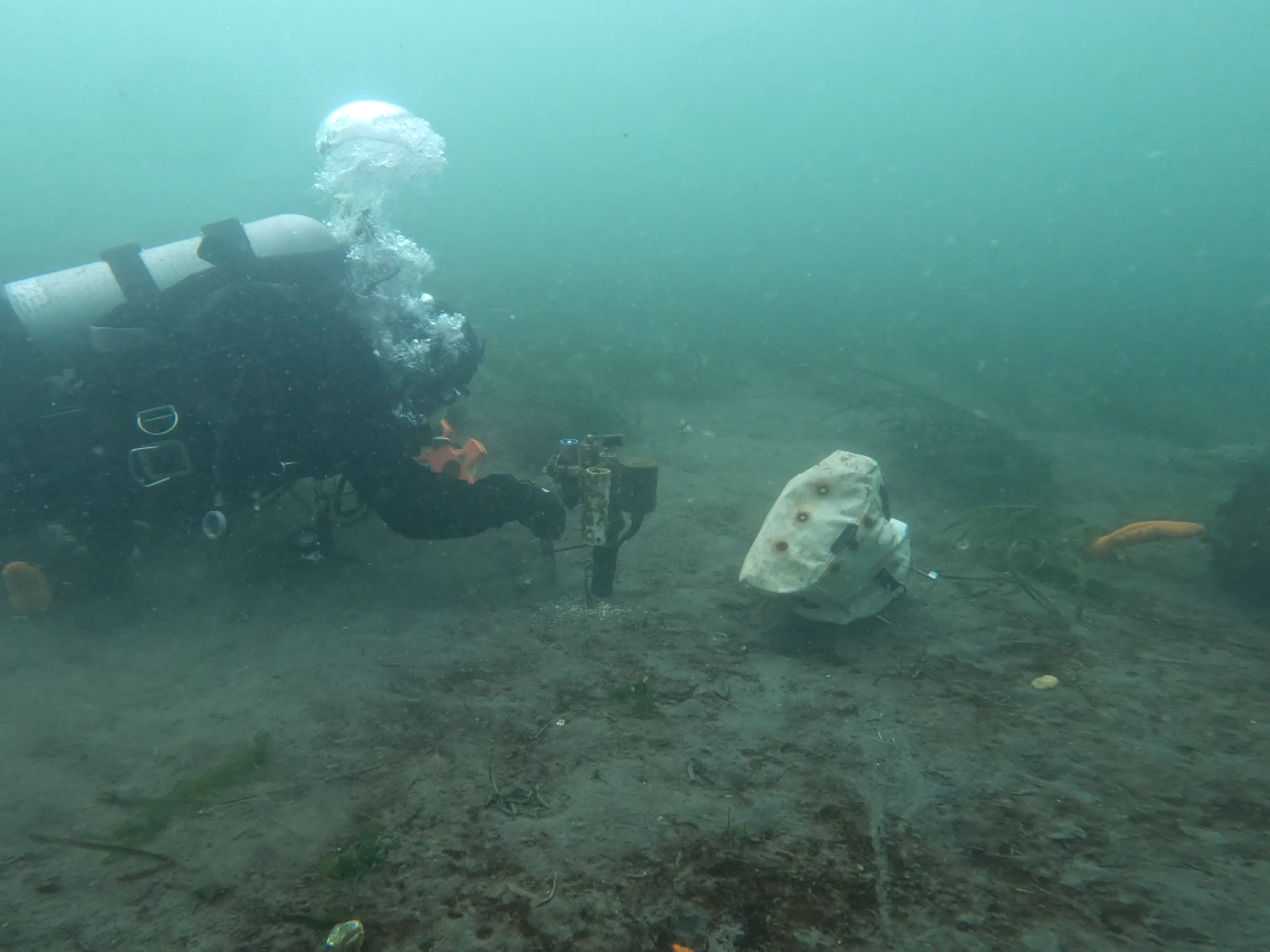Coastal Sciences Division
Coastal Sciences Division
The Coastal Sciences Division utilizes its marine and coastal science and engineering capabilities to address complex questions and uncover ocean-based climate solutions related to energy, the environment, and security. The division has two groups—Ocean Dynamics and Renewable Energy, and Integrated Coastal Research and Technology—each of which is made up of four technical teams. The teams include marine energy research; offshore energy and environment; coastal modeling and resilience; marine dynamics and modeling; marine technology; fundamental and applied biogeochemistry; bioenergy and environmental sciences; and coastal ecosystems and communities.
Marine Energy Research
The Marine Energy Research team strives to accelerate the development of the marine renewable energy industry by removing societal, technical, and policy barriers. The team assists remote and island communities in their energy transition projects, completes rapid bench-to-field test cycles of new technologies, and helps maintain a repository of marine energy information. Our research focus areas include data collection and transferability, data dissemination, and new non-grid marine energy applications, such as ocean observations, aquaculture, regulator outreach, and collaboration with the international marine energy community.
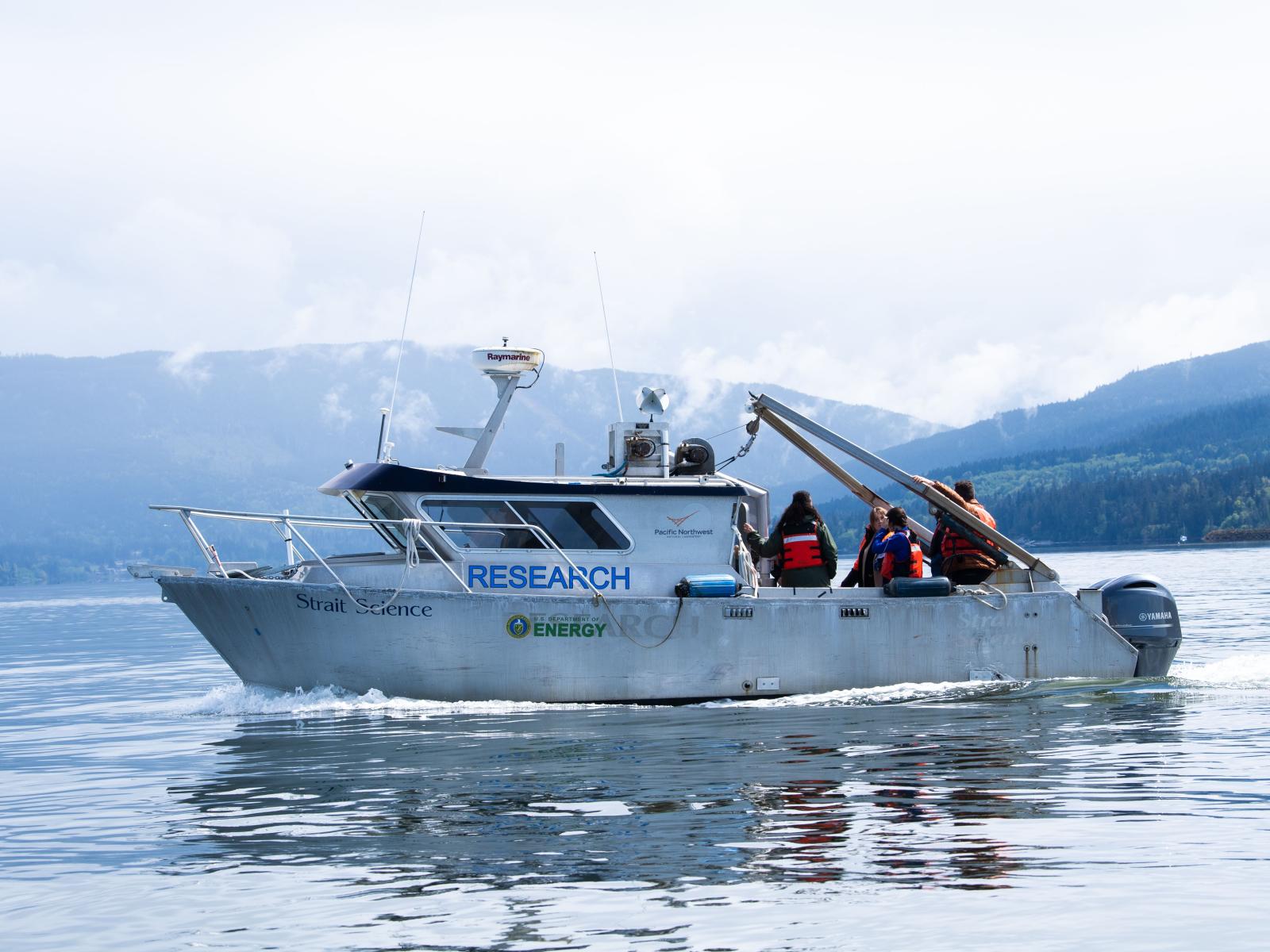
PNNL researchers test monitoring technologies for understanding potential environmental effects of marine energy devices.
Photo by Andrea Starr | PNNL
Offshore Energy and Environment
The Offshore Energy and Environment team works to advance renewable energy and marine decarbonization goals through national and international research and technology development. We study, model, and share resources about the potential environmental effects of offshore energy and promote solutions for sustainable maritime industries. Our researchers are primarily focused on the environmental impacts of ocean energy as well as leading initiatives for the blue economy, electricity transmission, science communication, and stakeholder engagement.
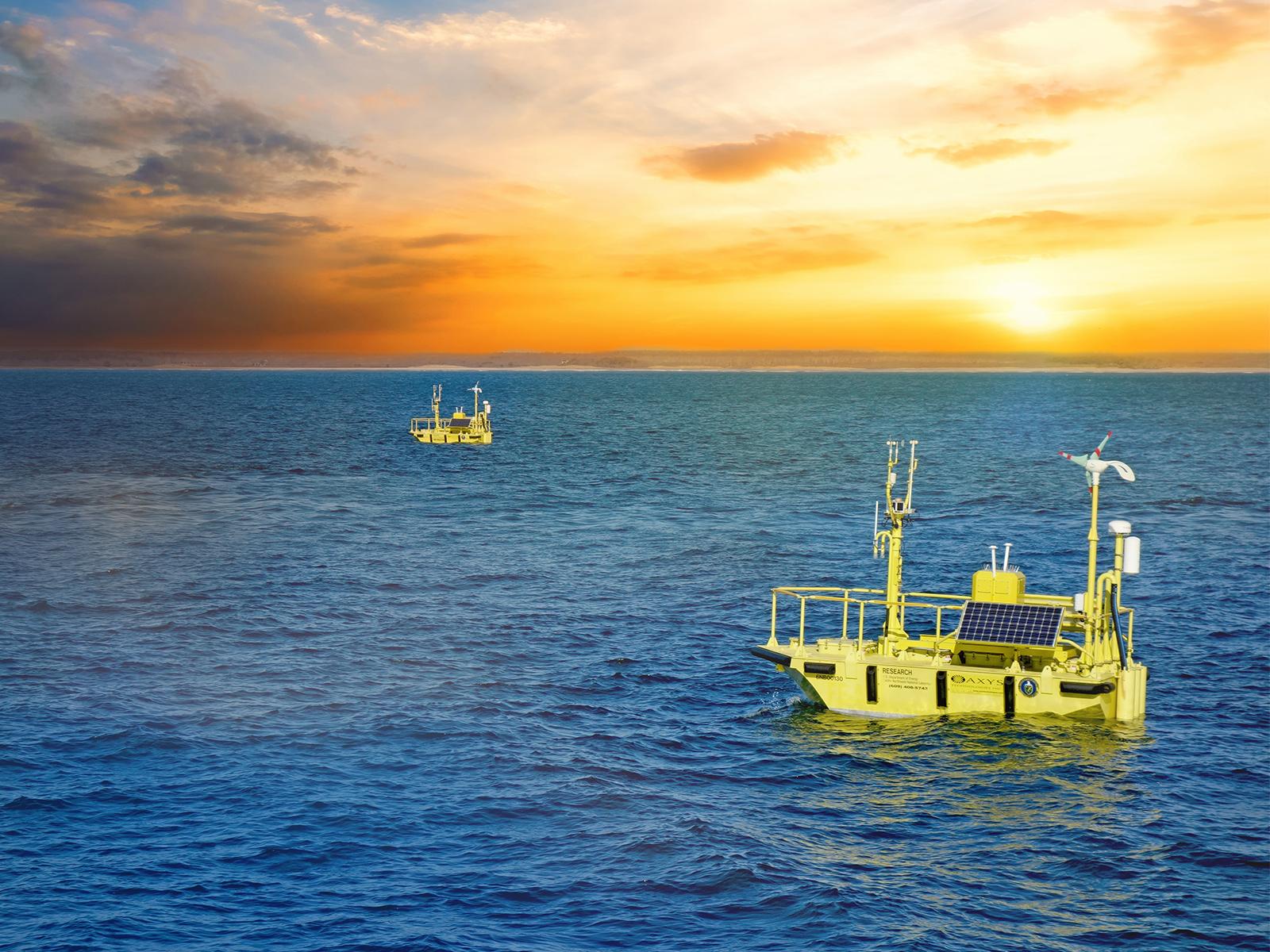
PNNL-administered research buoys capture wind measurements off the nation's coasts.
Photo courtesy of Ocean Tech Services, LLC and PNNL
Coastal Modeling and Resilience
The Coastal Modeling and Resilience team uses numerical models and observations to solve problems related to natural hazards like hurricanes and to help protect critical infrastructure along the nation’s coastlines. By studying the physical and biological impacts of climate and extreme events, we are addressing issues that affect energy and natural resources. We also work to improve Earth system predictability through knowledge-informed machine learning and artificial intelligence applications.
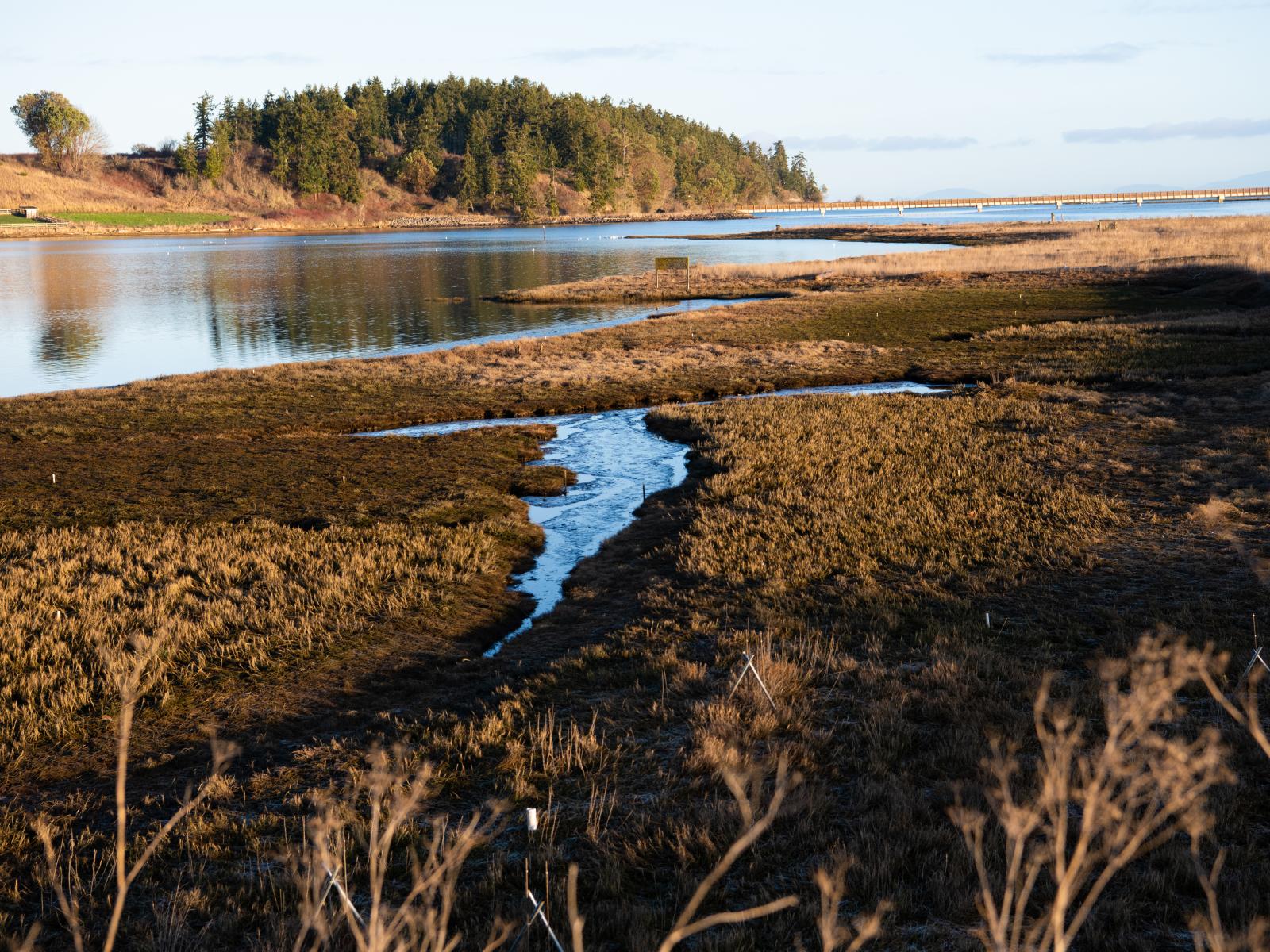
A complex coastal wetland ecosystem near PNNL-Sequim.
Photo by Andrea Starr | PNNL
Marine Dynamics and Modeling
The Marine Dynamics and Modeling team brings together expertise in physical oceanography, coastal and ecosystem modeling, and environmental engineering. We employ advanced modeling techniques to understand and predict coastal and ecosystem dynamics. Our researchers lead efforts to characterize renewable energy resources, study the environmental effects of marine energy systems, and assess the resilience of coastal ecosystems.
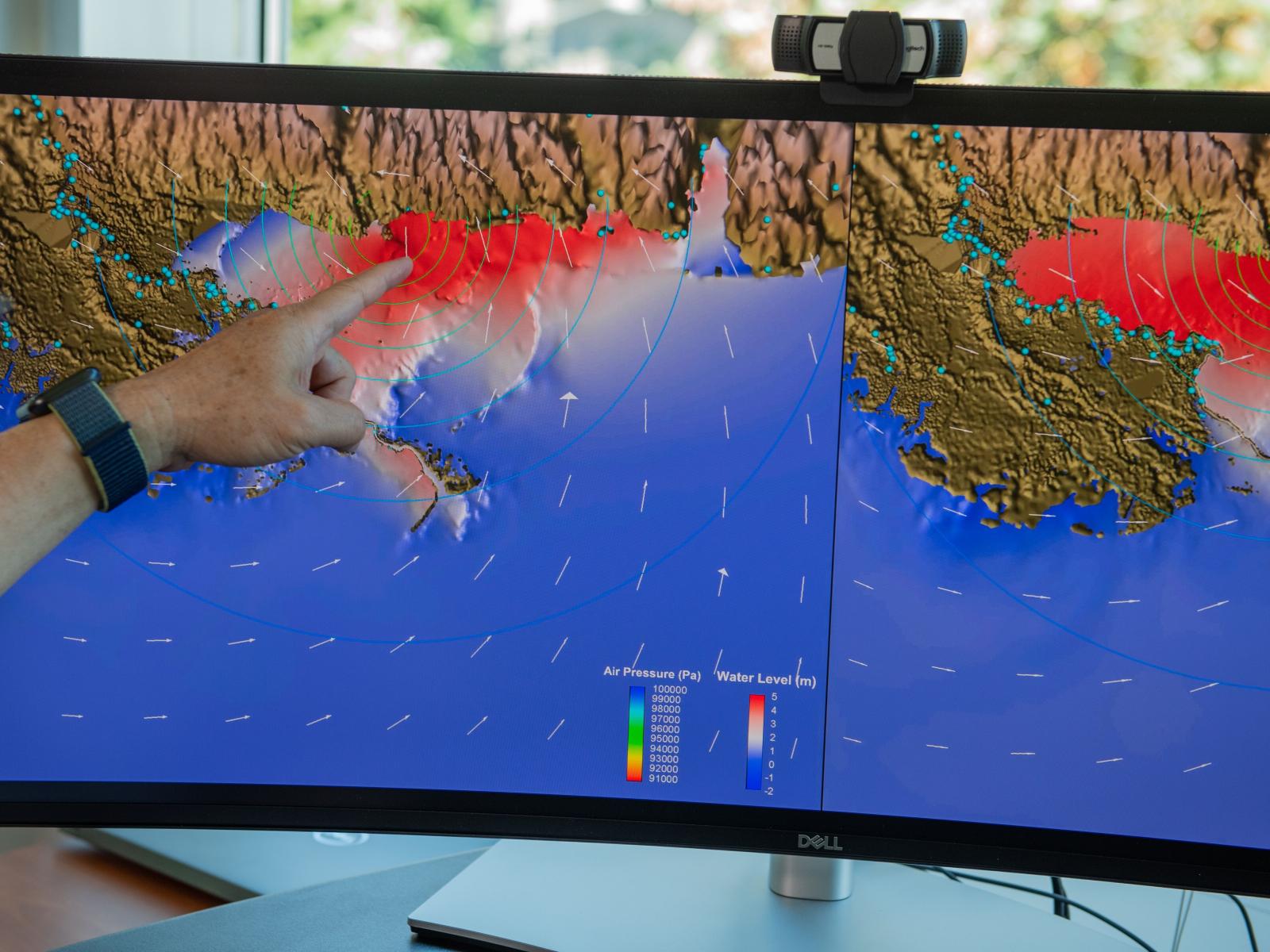
A coastal modeler shares an Earth systems model predicting outcomes of extreme events.
Photo by Eric Francavilla | PNNL
Marine Technology
The Marine Technology team comprises individuals from multiple disciplines in engineering and ocean sciences, highlighting various capabilities with a focus on applied work in coastal and marine environments. Research areas span renewable energy fields and carbon dioxide removal. We work from the “bench to the bay,” turning theory into practice with the goal of operationalizing marine technology for the betterment of society.
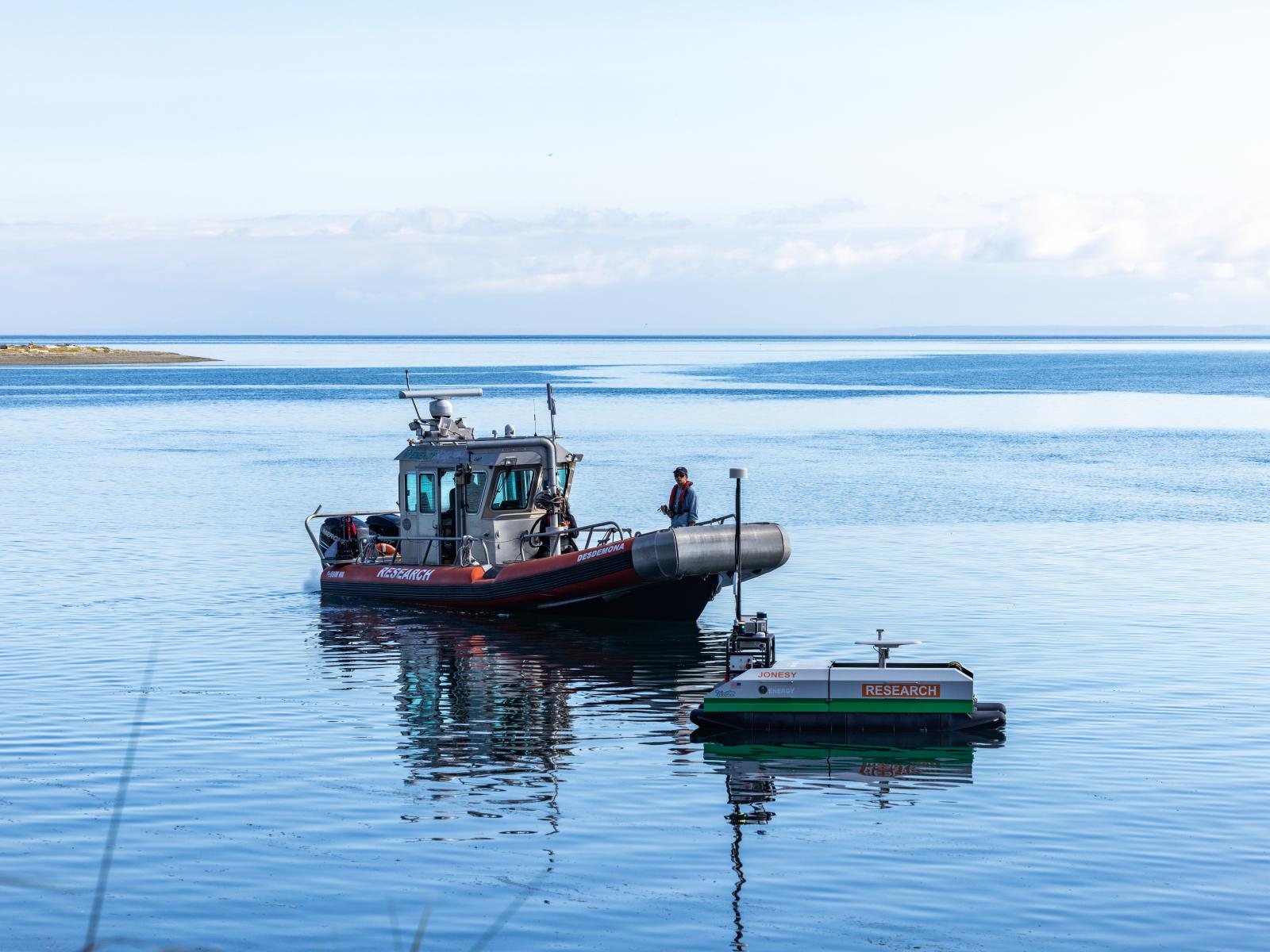
Researchers test capabilities of the autonomous surface vehicle Jonesy in Sequim Bay.
Photo by Graham Bourque | PNNL
Fundamental and Applied Biogeochemistry
The Fundamental and Applied Biogeochemistry team conducts biogeochemical research that supports a basic understanding of Earth system processes and develops applied technologies focused on climate solutions and renewable resources. We use observations and experiments in the field and laboratory to study the mechanisms that mediate carbon and nutrient cycling across terrestrial, aquatic, coastal, and marine systems to develop next-generation Earth system models. We also develop and test new technologies that harness the ocean’s vast supply of critical elements and ability to draw down atmospheric carbon dioxide.
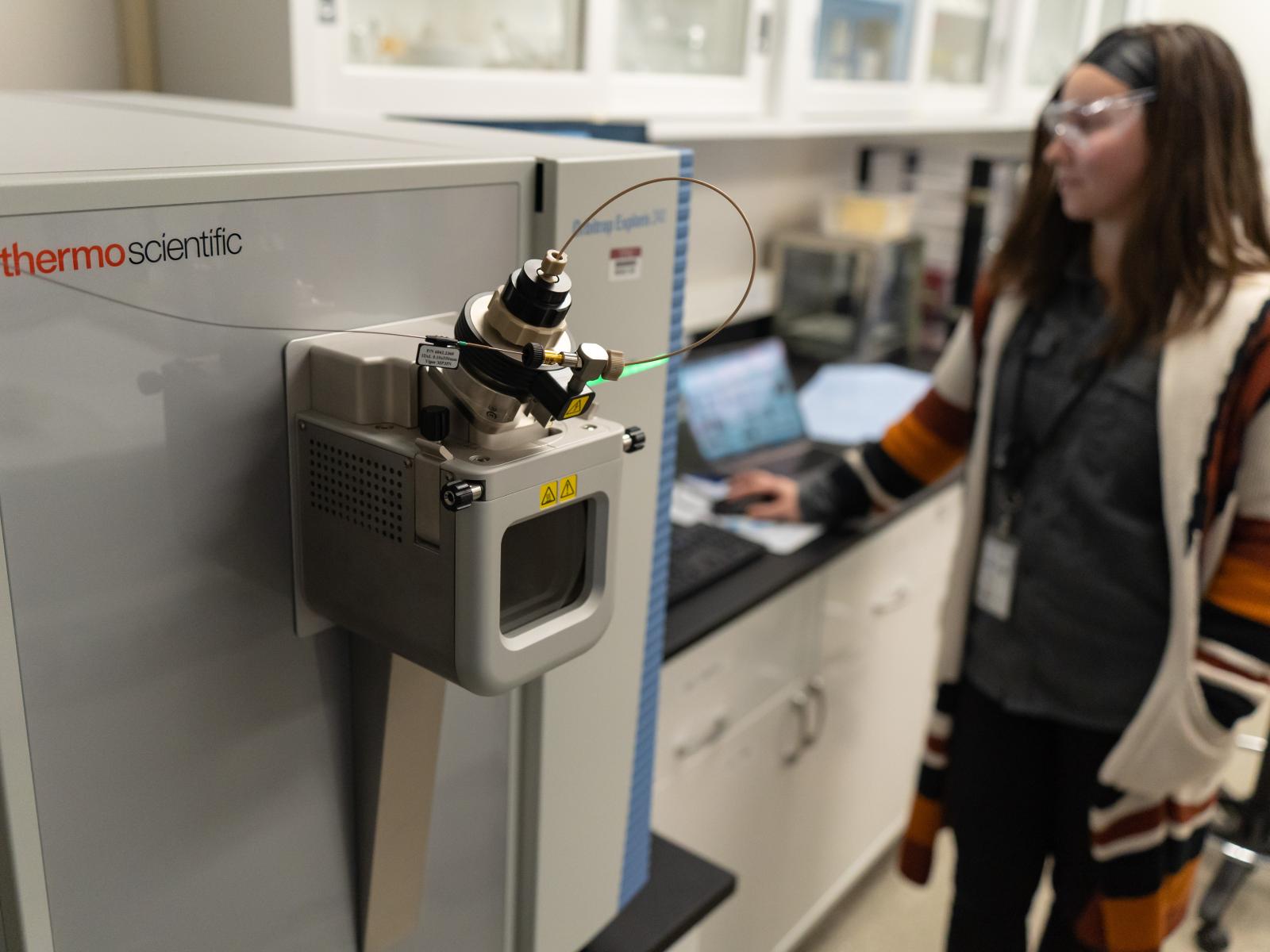
Researchers run experiments in PNNL’s analytical laboratory.
Photo by Shanon Dell | PNNL
Coastal Ecosystems and Communities
The Coastal Ecosystems and Communities team studies coastal ecosystems that are critical for aquatic organisms, habitats, and human communities. Through field experiments, community-engaged research, and ecosystem modeling, our team works to understand how ecosystems interact with human dimensions in coastal environments. This work includes considerations for how these factors intersect with renewable energy projects. Our work advances decision-making related to protecting and restoring shorelines and habitats, such as flood plains, marshes, and seagrasses.
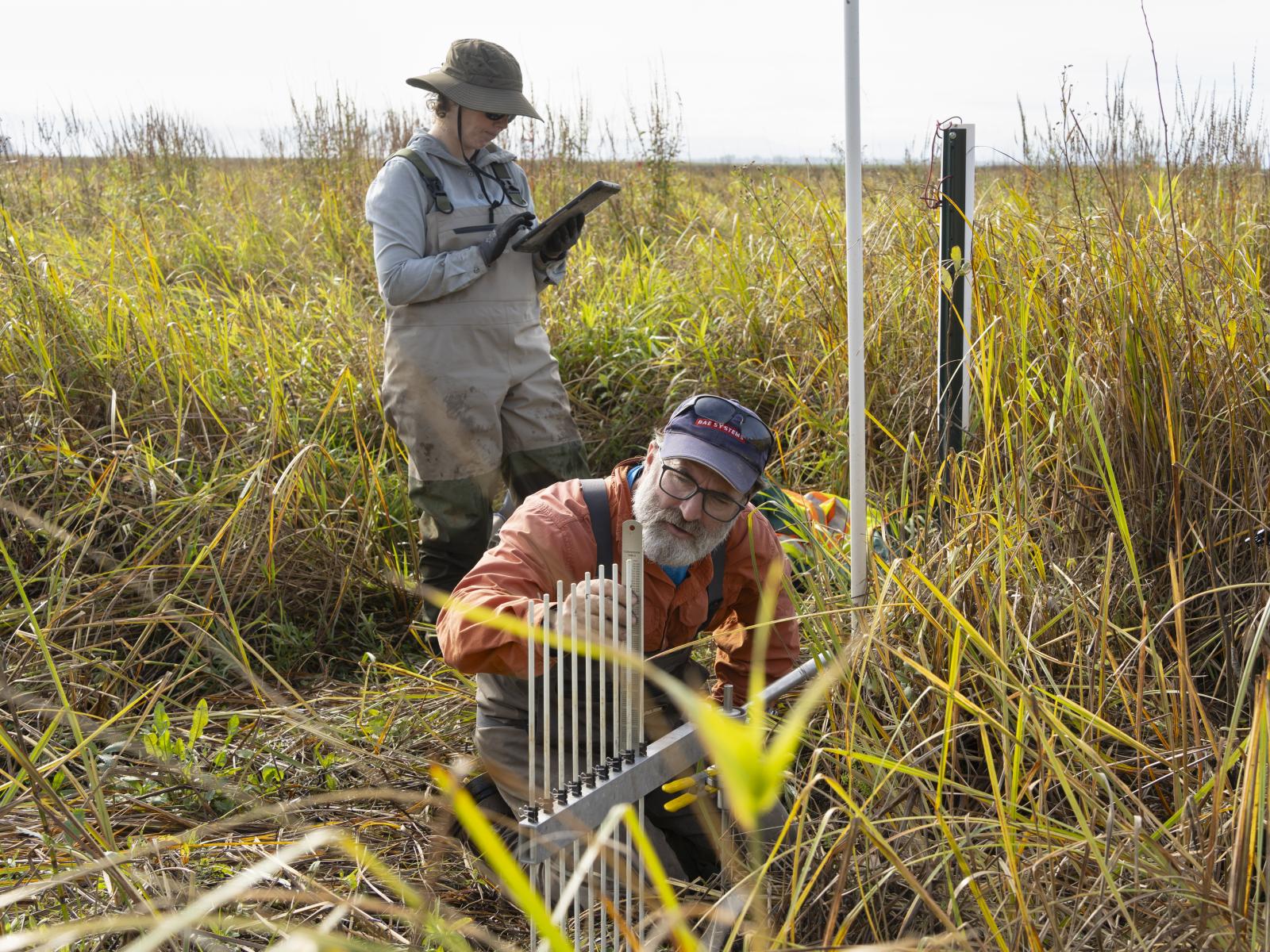
Researchers conduct sediment analyses at coastal wetland sites in the Columbia River Estuary.
Photo by Shanon Dell | PNNL
BioEnergy and Environmental Sciences
The BioEnergy and Environmental Sciences team has expertise that spans biological systems characterization, photoautotroph cultivation, environmental monitoring, water quality, data analyses, and biogeochemical cycles for numerous applications. Our diverse capabilities range from climate simulation systems, algae characterization and culture libraries, analysis of toxins, DNA extraction, biomass fractionation, and more to support advancements in bioenergy research and the understanding of complex coastal, terrestrial, and aquatic ecosystems.
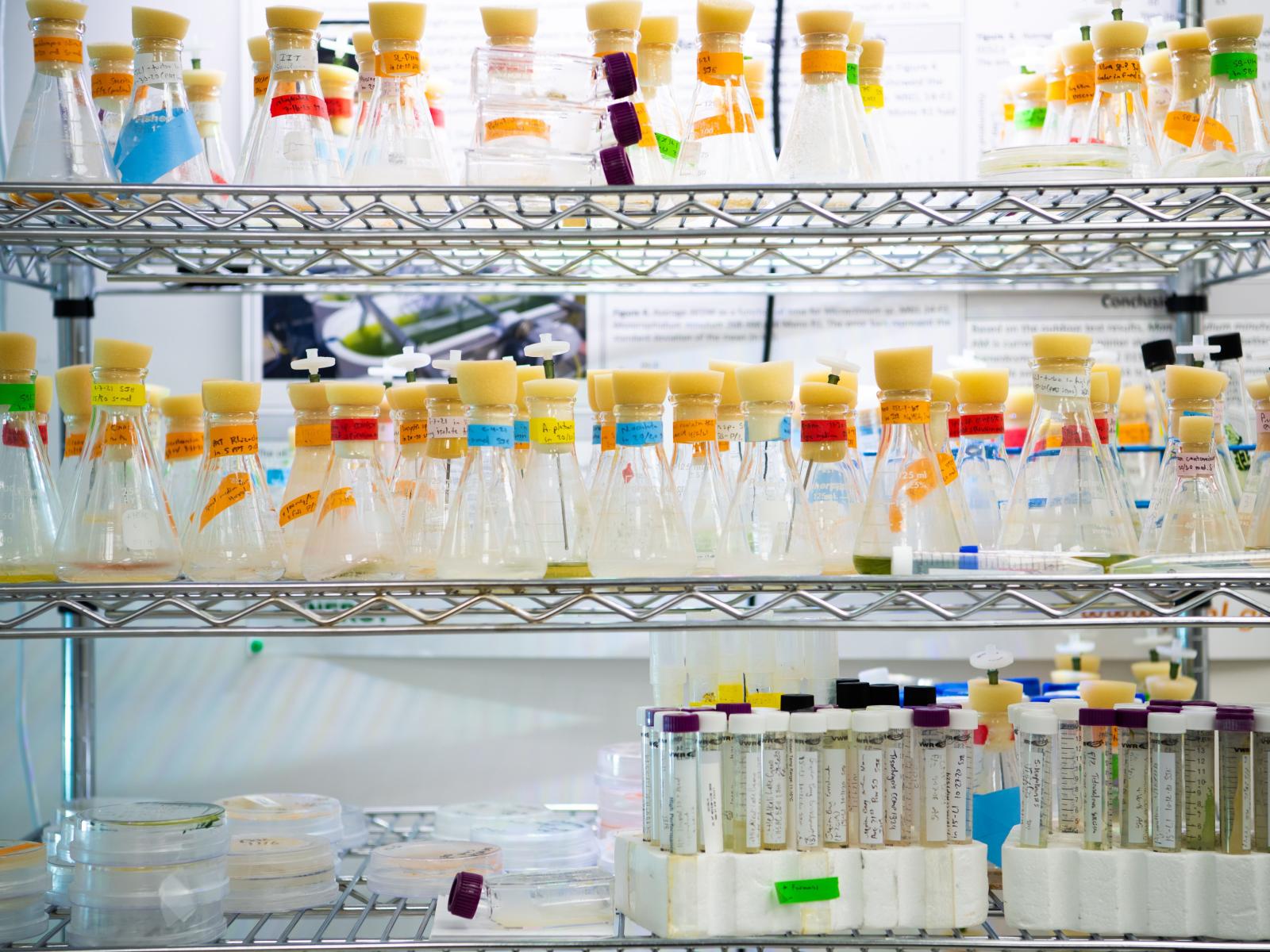
Algae samples stored in the laboratory for cultivation and testing.
Photo by Andrea Starr | PNNL
Marine Operations, Planning, and Support
The Marine Operations, Planning, and Support team provides field operations support from proposal to deployment. Our team is comprised of a mixed discipline group of scientists, engineers, and specialists performing work in marine robotics and AI/machine learning, geospatial analytics, environmental monitoring, and project support. To these skills we add the boat and dive operations capabilities to cover a variety of deployment and retrieval types both on the water and below the surface.
